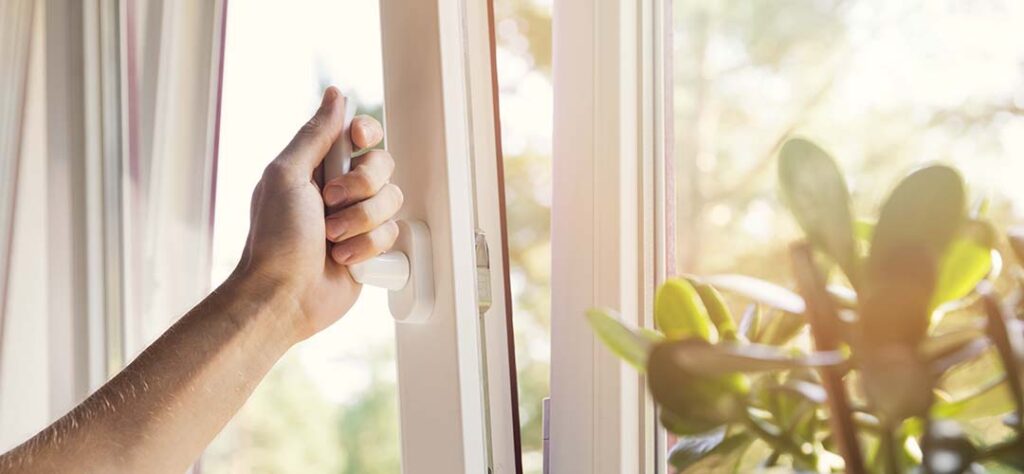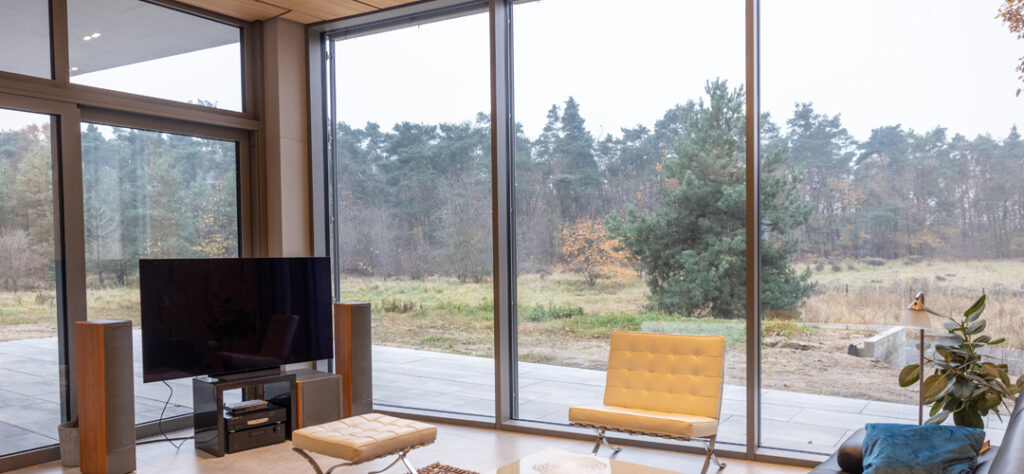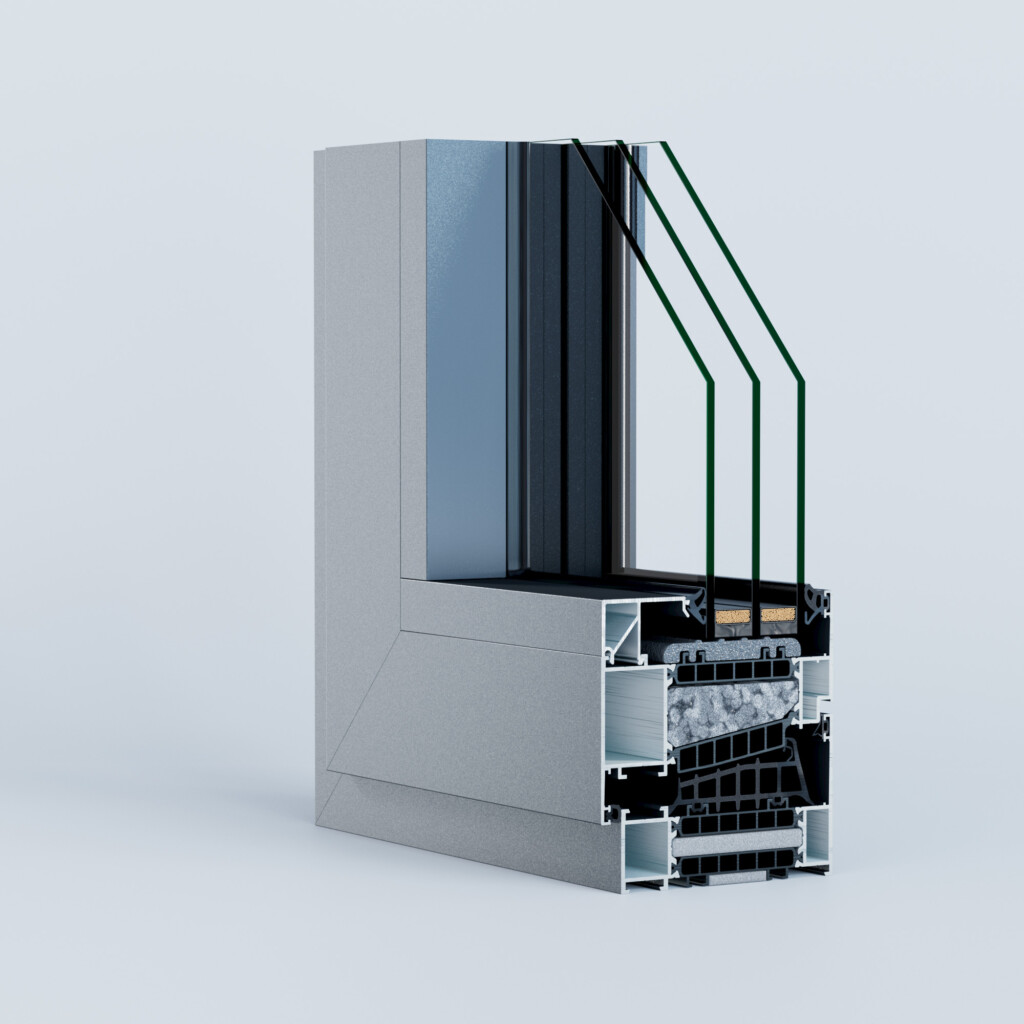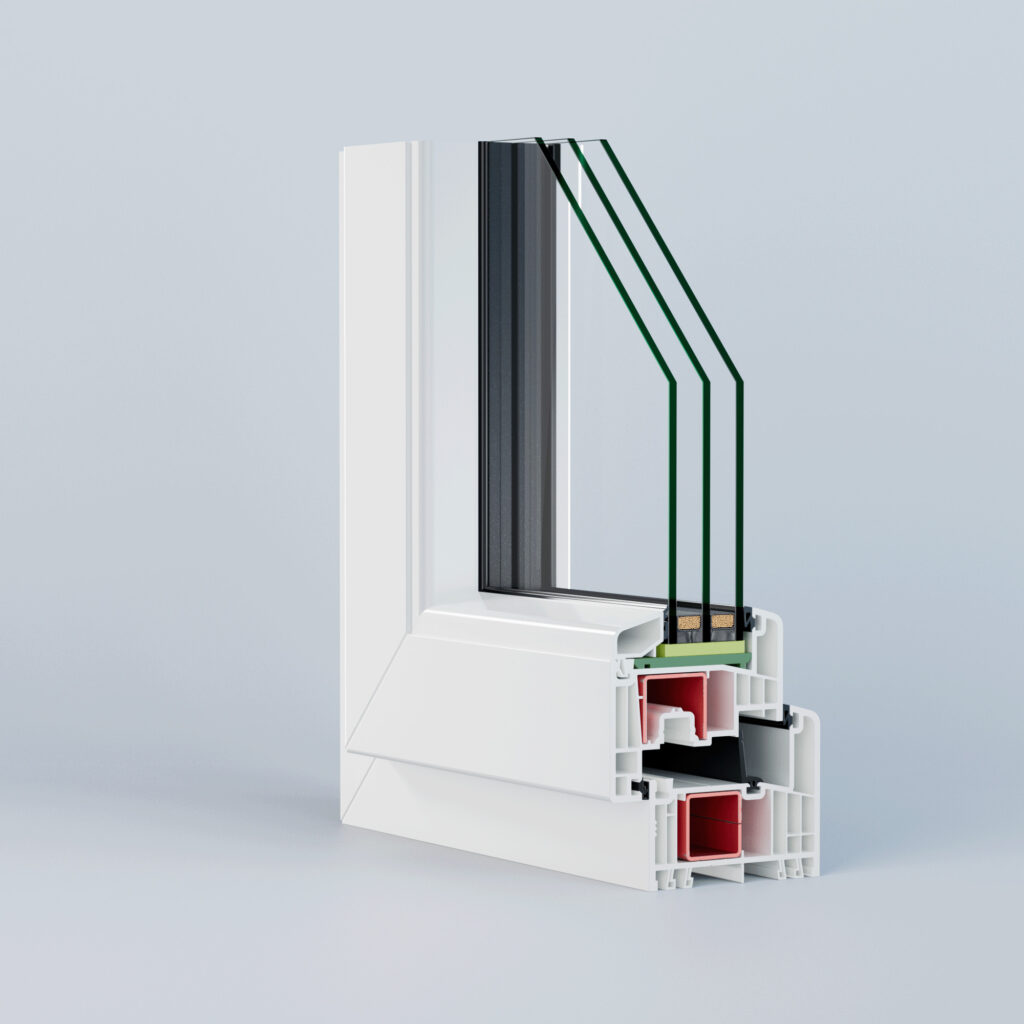Soundproof windows, which have high acoustic insulation properties, have a significant impact on the comfort of the household. Windows with high soundproofing are especially important in areas with high noise levels, such as urban areas, neighborhoods near busy streets, railway tracks, or airports. We explain what acoustic insulation in soundproof windows is all about and which ones to choose in order to eliminate noise.
What does “soundproof” mean?
The term “soundproofing” in relation to windows refers to the window’s ability to reduce the transmission of sound from the outside to the interior of the room or vice versa. It is a measure of the window’s effectiveness in acoustic insulation.
Various laboratory tests assess the soundproofing of windows by measuring their ability to reduce sounds at different frequencies. These evaluations are expressed in decibels (dB), where higher values indicate better soundproofing.

How does acoustic insulation work in windows?
The soundproofing of a window is expressed through acoustic insulation, determined by the acoustic insulation index Rw. This is a measure of the sound reduction provided by the window, expressed in decibels (dB). The higher the Rw value, the greater the protection against noise the window provides.
For example, a window with an Rw of 46 dB will insulate a room from noise better than a window with an Rw of 44 dB.
How is the acoustic insulation level Rw measured?
The Rw index is determined in a laboratory using standardized testing procedures. During the tests, the window is exposed to various sound levels, and then the sound level is measured on the side opposite to the sound source. The difference between the sound levels on both sides of the window gives the Rw value.
For example, if the sound level outside is 70 dB, and its intensity on the opposite side of the window is 30 dB, the Rw value would be 40 dB.
What factors influence a window’s soundproofing?
The soundproofing of a window depends on several factors, such as the thickness and type of glass, the quality of the window frame, the tightness of the connections between the structural elements, and the number and type of seals used. The method and quality of window installation in the building also play a significant role in effective acoustic insulation.

What parameters do soundproof windows have?
Rw values for soundproof windows typically range between 36 and 40 dB in manufacturers’ declarations. Examples of windows with acoustic insulation levels that far exceed this range are models like Viva 83 or AluViva 102. The Rw values for these windows reach as high as 48 dB.
How to choose the right soundproof windows?
The higher the window’s acoustic insulation level, the more effectively it reduces sound intensity. Therefore, it is worth choosing windows with the highest possible Rw value – this will ensure the greatest acoustic comfort.
A busy street generates noise levels of up to 80 dB. Sounds heard in a home located near an airport can reach up to 100 dB. In such locations, even the ability to reduce one decibel makes a difference.
Acoustic comfort – why does noise level matter so much?
The noise level directly impacts the comfort and even the health of the household members. A level below 35 dB is harmless to humans and is recommended for work that requires concentration. Sounds in the range of 35-70 dB cause fatigue to the nervous system, making it harder to rest and fall asleep. With noise levels between 70-85 dB, work efficiency significantly decreases, and long-term exposure to such noise can be harmful to health, causing irritability, sleep problems, and even hearing damage. At levels of 85-130 dB, understanding speech becomes difficult even from a distance of 50 cm, and the risk of hearing damage increases. Noise above 130 dB poses a significant risk of hearing damage and can lead to other internal organ disorders.
A reduction in noise level by 10 dB is perceived as halving the noise. Therefore, it’s worth checking the acoustic insulation parameter before purchasing windows!

| Sound intensity level | Description |
|---|---|
| <35 dB | Harmless to humans |
| 35-70 dB | It causes fatigue and makes rest difficult. |
| 70-85 dB | May be harmful to health |
| 85-130 dB | Risk of hearing damage |
| 130⩾ dB | High risk of hearing damage (and other internal organs) |
What is the difference between sound-absorbing and soundproof windows?
The terminology associated with windows and their sound-absorbing and sound-insulating properties is sometimes used interchangeably, but there is a difference between the two terms.
The soundproofing of a window refers to the window’s ability to prevent the transmission of sound from the outside to the interior or vice versa. A soundproof window is designed to minimize sound penetration through airtight seals, the use of appropriate insulating and structural materials, and the incorporation of special glass.
Sound absorption of windows refers to the window’s ability to absorb or dampen sounds inside a room. A sound-absorbing window may be equipped with special acoustic materials that absorb sound, reducing its spread within the room. This is particularly important in spaces where we want to minimize echoes or generally improve the indoor acoustics.
Want peace and quiet but live in a noisy area? Do you need windows with high acoustic insulation? Contact our experts or fill out the form, and they will help you choose the best window and door solutions!


